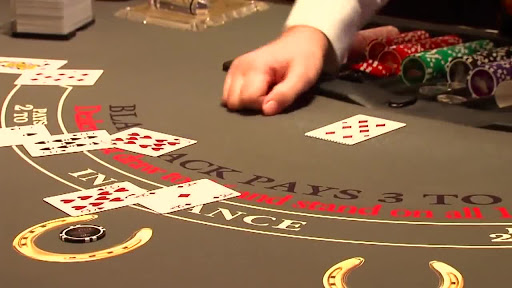The Psychology of Gambling: Why We Play and What Drives Us to Win
Gambling has been a piece of human culture for a really long time, from old dice games to current internet-based clubs. In any case, what is it about gambling that spellbinds such countless individuals? Understanding the psychology behind Bajiok অনলাইন gambling can reveal insight into why people take part in this movement and what persuades them to proceed, in any event, when the situation is anything but favorable for them.
The Excitement of Vulnerability
One of the vital mental drivers behind gambling is the charm of vulnerability. Dissimilar to numerous other exercises where results can be anticipated, gambling offers the fervor of flightiness. This rush, joined with the expectation of a win, sets off the cerebrum’s prize framework, delivering dopamine, a synapse related to joy. Indeed, even little wins or close misses can enact this award framework, empowering players to continue onward, expecting the huge win that appears to be just around the bend.

The Job of Hazard and Award
At the core of gambling is the gamble-reward dynamic. Individuals are normally attracted to gambles when they accept the potential award is worth the effort. In gambling, the commitment of critical prizes, for example, enormous monetary rewards, establishes a climate where facing challenges feels justified. A few players might be propelled by the test of defying expectations, while others are driven by the dream of extraordinary wealth. However, the discontinuous compensations in gambling—where wins are divided capriciously between misfortunes—make the action especially habit-forming, as it saves players confident about the following enormous payout.
Mental predispositions and strange notions
Gambling is likewise impacted by various mental inclinations and strange notions. One normal predisposition is the “speculator’s paradox,” the mixed-up conviction that assuming an occasion happens much of the time previously, it is doubtful to happen from here on out, as well as the other way around. For instance, after a few misfortunes, a player could think they are “expected” for a win. This conviction, however nonsensical, can prompt broadened play and higher misfortunes. Essentially, numerous players foster notions, accepting that specific ceremonies or four-leaf clovers can impact the result of random occasions. These convictions build up the possibility that they have some command over the game, making it harder for them to leave.
The Social and Close to Home Angles
Gambling isn’t just about winning cash https://bajiok.net/ it is likewise a social action for some. Individuals often bet in gatherings, whether in an actual club or through web-based stages, discovering a feeling of local area in shared encounters. Furthermore, gambling can be a close to home break for some, giving an impermanent interruption from individual pressure or fatigue.
The psychology of gambling is complicated, including a blend of energy, mental inclinations, and social components. While gambling can be a tomfoolery and exciting movement for some, it can likewise become hazardous for others, particularly when the craving to win surpasses the truth of the dangers implied. Understanding the mental components at play can assist people with pursuing more educated choices and perceive that gambling might be negatively affecting their lives.


